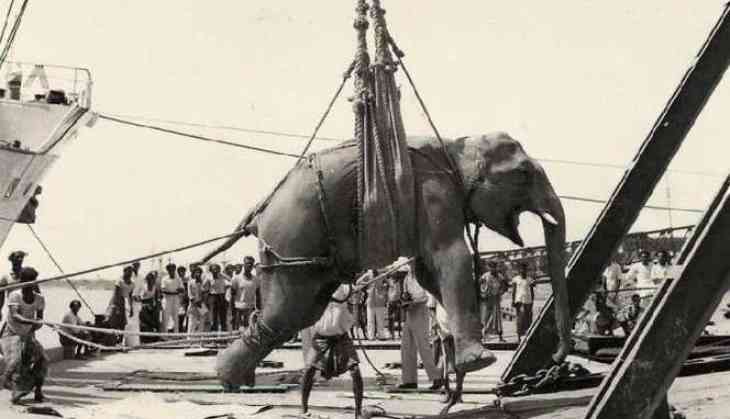
On September 13, 1916, a tragic event took place in the small town of Erwin, Tennessee that would come to be known as one of the darkest moments in American circus history.
Mary, a 5-ton Asian elephant, was publicly hanged from a railway derrick car, after she was involved in an incident that resulted in the death of her inexperienced handler. Mary's story is one of exploitation, cruelty, and ultimately, tragedy.
The Circus Industry in America at the Turn of the Century
In the early 20th century, the circus industry was at its peak in America, with travelling shows crisscrossing the country to bring entertainment to millions of people.
However, behind the glitz and glamour, the industry was plagued with animal abuse, exploitation, and dangerous working conditions for both human and animal performers.
Mary's story is a prime example of the disregard for animal welfare that was prevalent in the industry at the time.
The Incident That Led to Mary's Execution
On the day of the incident, Mary was performing with her circus troupe in Erwin, Tennessee.
During the show, her inexperienced handler, a man named Red Eldridge, prodded her with a sharp hook, causing her to lash out and throw him to the ground.
Eldridge died from his injuries the following day. In the aftermath of the incident, the circus owners decided that Mary had become too dangerous to keep and made the fateful decision to execute her in public.
Public Outcry and the Aftermath of Mary's Death
The execution of Mary sparked outrage among animal rights activists and the general public, who saw it as a gruesome and unnecessary act of cruelty. The incident received widespread media coverage, with newspapers and magazines across the country running stories about Mary's tragic fate.
The circus owners were also widely criticized for their handling of the situation, and their reputation suffered as a result.
The Legacy of Mary's Story
In the years that followed, Mary's story became a cautionary tale for the circus industry and a rallying cry for animal rights activists. The incident brought attention to the need for better treatment of animals in captivity and spurred calls for animal welfare legislation.
Today, Mary's story serves as a reminder of the dark side of the circus industry and the ongoing struggle for animal rights and welfare.


